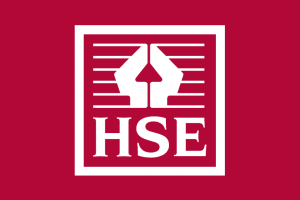How net zero can ease the energy price shock for businesses

By Ged Barlow, Chief Executive of Net Zero North West

Ged Barlow
The start of 2022 has been a mixed bag for business and industry. While the phasing out of COVID-19 regulations is providing light at the end of what’s been a long, dark tunnel for many businesses, an unprecedented spike in energy prices has caught firms cold.
The scale of this challenge has been put under the spotlight by the British Chambers of Commerce again this week, with its new survey finding that soaring energy bills are pushing three in four companies towards a ‘cost of doing business crisis’, which will only intensify the cost of living crisis for households across the country.
This picture reflects the experience of our Net Zero North West members. Made up of leading energy intensive firms and advanced manufacturers, we are an industry-led cluster with a mission to become the UK’s first low carbon industrial cluster by 2030 and world’s first net zero industrial cluster by 2040. Our members are simultaneously looking to lead the way on decarbonisation and clean growth while trying to pass through the choppy waters of surging energy prices.
The difficulties created by the energy price shock for just four of our members is eye-watering: A projected collective bill of up to £1bn in 2022, which is an increase of around 65% since 2020.
These costs could ultimately be passed down to consumers, leading to price rises across a wide range of sectors including food & drink products, water treatment, medical supplies, automotive and construction to name a few. We know that UK business is especially exposed due to a vicious cycle of a diminishing domestic gas and energy storage supply, over-reliance on a volatile global energy market, and renewable energy sources remaining too intermittent to provide a sure fire means of powering industry.
So, what can we and the Government do? We’re calling for an integrated, long term and resilient UK Energy Strategy to protect against these pressures and drive the net zero transition. We’ve also set out what government must do in the short term to make us more resilient and remove blind spots across our energy system.
Net zero must be the golden thread running through the policy remedies. From backing small modular nuclear reactor development, to offering market support to kickstart hydrogen production at scale, and embracing local energy networks.
We also need a root and branch review of planning policy to help supercharge solar and wind development, a fair carbon pricing regime to prevent offshoring and protect low carbon domestic industries, and an ambitious Electric Vehicle rollout.
The good news for regional business and industry is that the North West has all the ingredients to be the pioneers and engine room of greening and strengthening the UK’s energy system.

A macro focus is needed to shake the Whitehall tree and hopefully get the Government pulling the right levers to support this change, but there are a number of things in the meantime that businesses of all shapes and sizes can be looking at to help cushion the energy price blow and become more sustainable.
Savings can be made through adopting more fuel-efficient vehicle fleets and encouraging your suppliers to do the same. You can cut your tax and bills by reducing waste and increasing recycling. The new normal of hybrid working is here to stay for many, so taking stock on the need to travel can help both reduce emissions and overheads.
And from 2023 you will be able to get ahead of the game and become more self-sufficient energy-wise by taking advantage of business rate exemptions and investing in green tech such as solar panels, heat pumps and battery storage to support your operations. There is no silver bullet available at the moment, but businesses must make the marginal gains where they can.
North West organisations like the Local Enterprise Partnerships and Business Growth Hubs are providing excellent services to businesses at this time, helping signpost how company leaders can not only audit their green performance, but identify potential savings.
We know that the country has to do things differently if we’re going to reach net zero in a world-leading timeframe and seize the huge green industrial revolution prizes on offer.
But, in the immediate term, this challenge can also give businesses food for thought on how to navigate the current web of economic uncertainties, and not least how to get some much needed insulation from the tough energy price headwinds.







